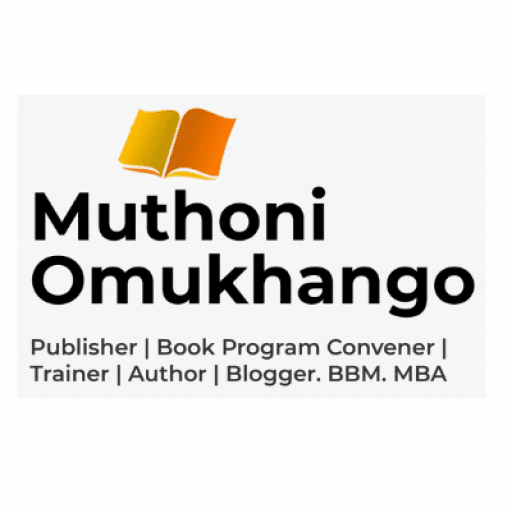Objectives:
- Writing: an effective technology since ages past.
- The significance of writing
- The implication to “we” the writers.
Writing: an effective technology since ages past
Our foundational scripture is;
Romans 15:4
For whatever was thus written in former days was written for our instruction, that by [our steadfast and patient] endurance and the encouragement [drawn] from the Scriptures we might hold fast to and cherish hope. (AMP)
In describing writing/books as a technology, Chad Grill the Chief Executive Officer of the mission, a network of business & tech podcasts designed to accelerate learning, says that,
“The most useful definition of technology I’ve heard is, the ability to do more with less.”
Books are a powerful technology. Through reading books, we can gain wisdom from thousands of people we have not even met.
So taking a biblical journey, we realize that this technology was discovered way back and the actual author of this technology is the Creator Himself. In order, therefore, for our writing to be purposeful, then we would want to see the Creator’s perspective on it.
Romans 15:4 This Scripture passage beautifully expresses the significance of writing. We see the significance of what was written in the past for a generation that was yet to come.
Here we can, therefore, conclude that the foundation of the hope we have is through our interaction with the written Word. Through it, we are assured of a secure future.
In appreciating the power of writing and proper writing for that matter, the Lord directed Habakkuk (in Habakkuk 2:2-3) to,
“Write the vision and engrave it so plainly upon tablets that everyone who passes may [be able to] read [it easily and quickly] as he hastens by.
For the vision is yet for an appointed time and it hastens to the end [fulfillment]; it will not deceive or disappoint. Though it tarries, wait [earnestly] for it, because it will surely come; it will not be behindhand on its appointed day”. (Amplified version)
• In forming a nation and community from a group of slaves, the Lord took the approach of writing the laws on tablets of stone (Exodus 31:18)
• In strengthening Joshua as he led the people into their inheritance, the Lord pointed him to the delivered written law instructing him to meditate on it as the way to remaining successful in the task and mission ahead of him (Joshua 1:8)
• In revealing the secret of successful rulership for the Kings of Israel, God instructed them to write a copy of the law for themselves which they were to read all the days of their lives (Deuteronomy 17:18)
• In seeking to bring hope to an entire nation and build strength to confront the Philistines, David largely referred to the written promises in Deuteronomy and therefore killed Goliath and victoriously led the nation against the Philistines (1 Samuel 17)
• In failing to adhere to the written instructions on the transportation of the ark, a life was lost in the middle of a very well-intended act (2 Samuel 6:19)
[10:25 am, 18/05/2020] Peter Achar: • In activating Daniel to make a powerful prayer that initiated the process of restoration of the Jews from the Babylonian captivity, the writings of prophet Jeremiah came in very handy. (Daniel 9:2)
[10:26 am, 18/05/2020] Peter Achar: • In overcoming the devil and therefore securing the future of the entire purposes of God, Christ Jesus referred to the written word in Deuteronomy.
• In revealing the secret behind the divine impact and power through their ministries, David Brainerd, the young missionary to the American Indians, John Wesley the powerful founder of the Methodist and Jonathan Edwards the fiery American preacher inspire us through the simplicity of the journals of their daily life and experiences.
• In awakening us to the richness and unmatched beauty of our African context, many of you, the African authors, are already setting aflame many hearts in this continent and beyond through your writings.
We can go on and on and we will discover that writing is a technology that has been used both in advancing good and evil and permanently altering the history of communities, nations and even the world.
What can we say is the significance of writing?
1. Writing assures and can enable the “memory of a people’s ways to avoid the loss of their way”.
2. Writing can secure the unity of a people brought together for a common cause, long after the visionaries are gone.
3. Writing ennobles the normal and sometimes mundane life experiences by making them useful to many beyond what we can imagine.
4. Writing fulfils Christ’s command that we are the salt of the earth by enabling us to preserve, secure and pass-on value to many who are yet unborn.
5. Writing reveals the hidden gems and wisdom in largely chaotic and seemingly incoherent situations of life. An example here is the hidden remnant we see through the story of Dietrich Bonhoeffer in the hopeless, heartless environment of the Second World War.
6. Writing is the only way we connect with the past and modern heroes of faith and therefore inspire a new generation into taking their place in history towards the end of the age.
7. Writing can multiply the fruit of our lives and ministries beyond the limited boundaries of our current physical jurisdictions.
What is the implication to “we” the writers?
1. We will always ensure that our writing is done from a position of death to self and absolute surrender to God, knowing that our books will be instruments for His will and purpose way beyond the immediate.
2. As was the case of Habakkuk, we will seek to write in plain, clear, and excellence for the sake of all those who will “pass by” our way through reading our books.
3. We will joyfully accept the sacrifice and the intensity that comes with the process of writing. Submitting to the divine discipline required, knowing that the fruit will be worth all the labour.
4. We will not despise the power of our story and experiences in our journey in Christ in providing wisdom and enriching knowledge for many both today and in the near and distant future.
5. We will write! Even though we may have been on the verge of giving up, we will arise and write!
I conclude by saying that may our writing be truly a reflection of the heart of the ultimate author of our faith as He guides and directs us in fulfilling his mission on earth through the gift of writing.
The significant impact that can be traced to a certain book read?
Half-Time by Bob Bufford helped me understand why I was feeling the way I was feeling in my career. That helped me make a major transition in my life that has led to living a life of significance.
Pst. Barnie Achoki
This writing that you have done today on this forum sir, is giving me more confidence about the children’s book I am working on. Otherwise, the teaching is quite intense I need to write it down before saying more🤔🤫 But to mention a few books is the Alchemist, Eat that Frog by Brian Tracy, Personal MBA by Josh Kaufman and several books by Joyce Meyer plus the Bible. I would say that they shaped what I do today.
Joyce Wakini
For some reason the book I recall having pushed me into a reading culture was the “Black Arrow” I don’t know what happened from there but something clicked and I developed an insatiable appetite for more and more books regardless of the genre or classification.
QA
This is quite the read, Peter. Very informative. I have a question though... Our past points to people (Africans) vibrant in passing on information through storytelling. However, things seem to have changed. Writing is a means of storytelling - it’s a means to tell that lasts longer. Why does it feel like we are not 'telling' as much? Is the problem forums? Are we passing enough relevant stories to our children? Since we consume more content from abroad (movies, series, normal television programming, books etc), what does that say about our own stories?
Because of our oral culture, we find that even some of our very own stories and experiences are written by non-Africans. However, I remember many years back when we had storybooks by African authors that were common both for primary and secondary schools. Even today high schools still use a lot of African authored books for their literature. I feel there is a lot of space to write African stories that are relevant to the times and do so with a global audience in mind.
Information Technology is creating space that can enable us to reach an audience beyond the continent. We probably also need to convert our written stories into other forms that can further interest the younger generation. Some of the comic books we read as young children such as Tinting, and others like Robinson Crusoe were also available in audiovisual form. Our stories are there. Probably we haven’t weaved them in ways to speak to a bigger audience.
QA
So it’s a packaging problem? (Oversimplifying here)
I would say yes. We might have been overtaken by time while we were still growing as authors. I guess it takes seasoned publishers and authors to be able to see the information gaps and the opportunities in them.
However, God is also able to raise a new generation of people who are willing to be called. The topic today also addresses that question. Until authors understand the important role they and their gift of writing plays in society as custodians with the gift to package the information or teachings, vital knowledge shall continue to be lost. Publishers may contact an author to write on something according to the author’s niche, thus ensuring continuity.
Technology is the tool for faster dissemination of information – we need to embrace it.
QA
Authorship is leadership - expound on this?
By this, I mean that when you become an author you enter the realm of being an influencer. This effectively makes you a leader in that your perspectives become available to influence and inform the life and choices of others.
We share the leadership vision by writing it down on today’s tablets that he that reads it may run with it. This makes me conscious about the objective that each book I write is going to meet. This kind of information matures up authors from writing based on inspiration/push alone to provide the correct solutions to society’s problems. Therefore before finishing that book, its prudent to define the problem statement.
Writing should be for transformation.
Joyce Wakini






